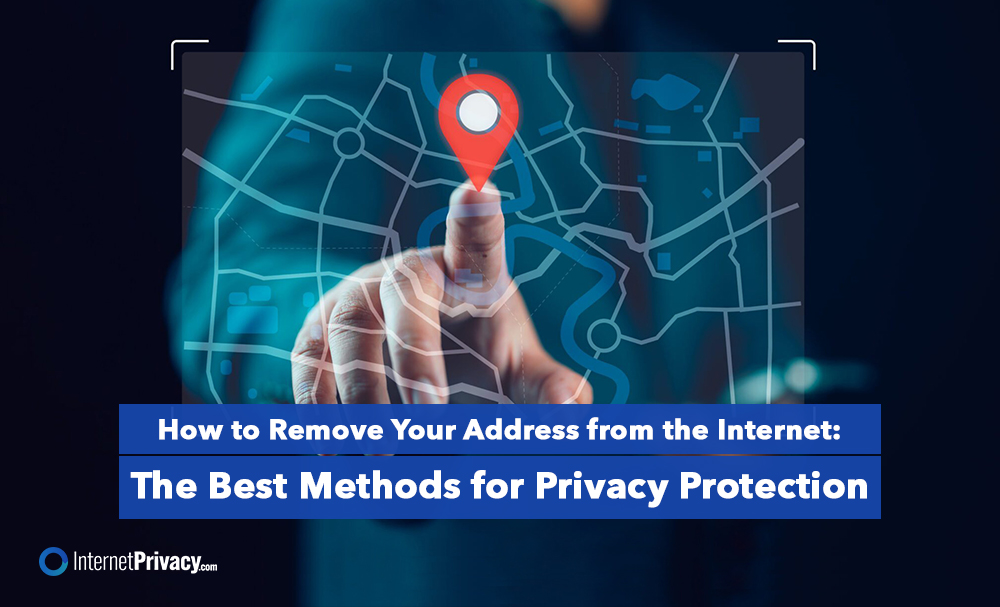How to Remove Your Address from the Internet: The Best Methods for Privacy Protection

Personal information, like home addresses, is easily accessible online, which poses real risks, including identity theft, phishing attacks, and unwanted solicitations. Additionally, personal information can be exposed or sold on the dark web, where it becomes difficult to trace and remove.
Understanding the Issue
What Personal Information Can People Find About You Online?
It’s alarming to know that a vast amount of personal information can be found about you online. This includes your name, phone number, home address, email address, social media profiles, and sensitive data such as your Social Security number (SSN) and credit card numbers.
People search sites, data brokers, and social media platforms are just a few examples of where your personal information can be found. Moreover, online accounts, public records, and search engine results can reveal significant information about you.
Why Is Your Address Online?
Your home address might appear online for various reasons. It could be part of the public record, listed in a phone book, or a publicly accessible document.
A third party might have put your address online after you unknowingly permitted them. Even if your address is in a public record, it shouldn’t appear as a Google search result.
However, data brokers and people search sites can collect and sell your personal information, including your address, to advertisers, law enforcement, and other organizations.
Why Would You Want to Remove Your Address from the Internet?
Taking your home address off the internet is vital in protecting your privacy and personal safety. Data breaches can occur when old accounts and apps are left vulnerable to hacking, exposing personal information and increasing the risk of identity theft and fraud.
When details like your address are readily available, the risk of identity theft or fraud increases. Data brokers often collect and sell this information without your consent.
Hence, managing your privacy settings and limiting access to your personal details is crucial for protecting your data and reducing your digital footprint.
What Are the Risks of Having Your Address Online?
When your address is easily found online, you are exposed to various risks, including identity theft, stalking, harassment, and endless junk mail or phone calls.
Understanding what personally identifiable information (PII) is being shared and the risks involved is crucial.
Criminals often exploit such information for financial gain, and the constant influx of unsolicited contact can be frustrating.
It’s essential to manage what information is out there to protect yourself—adjust privacy settings, use credit monitoring tools, and consider anti-tracking software and virtual mailbox services.
Taking control of your online presence can significantly lower the risk of privacy breaches and unwanted attention.
Securing Your Online Presence
Secure Your Social Media Accounts
Securing your social media accounts is crucial to protect your personal information and prevent identity theft. Here are some steps you can take:
- Limit who can see your personal information: Adjust your privacy settings on social media platforms to ensure that only your friends or followers can see your personal details.
- Use strong passwords: Use unique and strong passwords for each social media account, and consider enabling two-factor authentication.
- Be cautious of phishing scams: Be wary of suspicious messages or emails that ask for your personal information or login credentials.
- Monitor your accounts regularly: Check your social media accounts for suspicious activity or unauthorized access.
- Use a virtual private network (VPN): Consider using a VPN to encrypt your internet connection and protect your personal data when using public Wi-Fi networks.
By taking these steps, you can significantly reduce the risk of your personal information being compromised on social media platforms.
How to Remove Your Address from Popular Websites and Directories
1. Social Media Platforms
Ensure your privacy settings on platforms like Facebook and LinkedIn are set to limit who can view your personal details. Finding and requesting the removal of individual info from these platforms can be challenging, but it is crucial for protecting your privacy. Submitting a data removal request through their help centers can also help protect your privacy.
2. Online Directories and White Pages
Sites like White Pages often display personal information publicly. Submitting a data removal request can help ensure your address isn’t readily available. Understanding how these sites collect data will help you manage your privacy better.
3. E-commerce Websites
Since e-commerce sites store your address for shipping and billing, regularly reviewing and updating your account settings is a smart move. Deleting outdated information and using security features like two-factor authentication can further reduce your risk of fraud.
4. Online Accounts and Profiles
Conduct regular privacy audits of your online accounts to check for exposed personal information, including your address. Reviewing and adjusting privacy settings and submitting data removal requests where needed can help keep your information private.
How to Remove Your Address from Google Search Results
1. Contact the Website Owner
If your address is listed on a site without your consent, directly contacting the website owner can be a practical first step. Obtaining the site owner’s contact details is crucial as it allows you to communicate effectively about removing sensitive information. Use the site’s contact form or email, specify what you want removed, and explain your privacy concerns. If necessary, follow up until you get a response.
2. Submit a Request to Google
Google allows users to submit removal requests for personal information, such as your address, from its search results. This process involves providing the URLs where your details appear and verifying your identity.
3. Use a Content Removal Tool
Google also offers tools to help streamline the process of removing personal information from search results. By submitting the relevant URLs and explaining the request, you can regain control over your online presence and reduce the risks of unauthorized access.
How to Protect Your Address from Being Listed Online in the Future
To prevent your address from appearing online again, opt out of data broker sites like Whitepages and Spokeo and tighten your privacy settings. Regularly managing what’s out there reduces your chances of exposing sensitive information.
Additionally, be cautious about what you share on social media, enable two-factor authentication, and use a VPN to encrypt your data and mask your location.
What to Do If Your Address Cannot Be Removed from the Internet
If you cannot entirely remove your address from the internet, there are still ways to protect your privacy. Start with a privacy audit to see what other personal information is exposed and use privacy tools to limit access.
Review your social media profiles and check data broker sites like Spokeo and Radaris to understand what information is being shared.
Strengthen your security by enabling two-factor authentication, regularly updating passwords, and using password managers and privacy-focused browsers like DuckDuckGo.
While complete removal may not be possible, these steps can significantly reduce your online vulnerability.





